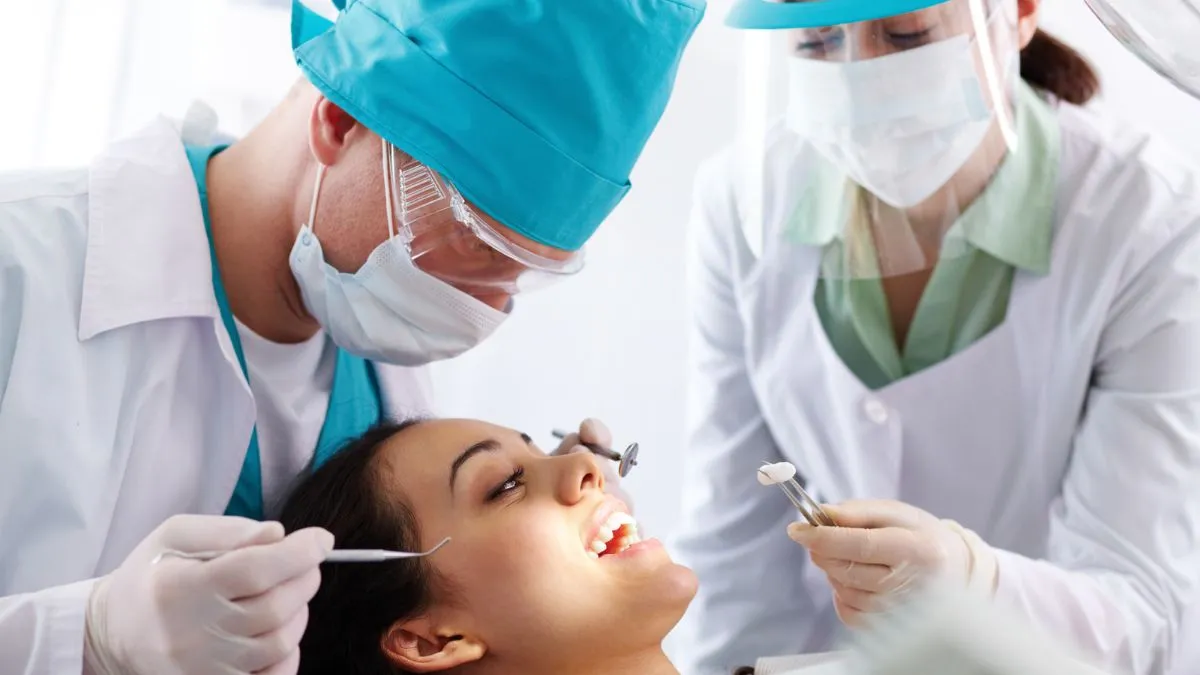- By Bornika Das
- Sat, 17 May 2025 09:21 PM (IST)
- Source:JND
Challenges Of Oral Cancer Survivors: Oral cancer remains a significant global health issue, with India accounting for nearly one-third of the global burden. The most common type, oral squamous cell carcinoma (OSCC), is heavily influenced by tobacco use, alcohol consumption, and betel nut chewing. Despite advances in detection and treatment, the survival journey does not end with remission. For many oral cancer survivors, life after treatment presents a complex set of physical, emotional, and social challenges. While multidisciplinary treatments such as surgery, chemotherapy, and radiation therapy are critical in improving survival rates, they often leave behind long-term effects that dramatically influence a patient’s quality of life. These can include changes in physical appearance, speech impairment, difficulties with eating, chronic pain, and psychological distress.
Survivors frequently struggle with issues such as disfigurement, nutritional deficiencies due to treatment-related side effects like mucositis and dry mouth, increased vulnerability to infections, and mental health conditions such as depression and anxiety. These ongoing struggles highlight the need for comprehensive post-treatment support that goes beyond medical management to include rehabilitation, counselling, and social reintegration. In conversation with Jagran English, Dr. Harshveer Singh Malhi, MD, Head of Oncology Medical Affairs – Merck Healthcare, shares the different challenges faced by oral cancer survivors and calls for treatment as an essential means to enjoy a better life post-treatment.
Major Challenges And Changes Faced By Oral Cancer Survivors
Physical Changes/Changes In Appearance
Depending on the location and size of the tumour, surgery, which is frequently the first line of treatment for oral cancer, might result in physical changes and or speech impairment. Dr. Harshveer Singh Malhi states, “Disfigurement is one of these changes, which can impact a patient's facial features and cause difficulties in social situations and self-esteem.” He further adds, “Surgical reconstruction, when possible, is associated with better quality of life as it preserves a better physical appearance.” Additional measures such as dental prosthetics and speech therapy can also aid in improving the quality of life.
Low Oral Intake
Capable of destroying any remaining malignant cells – ‘Radiation Therapy’, which is vital in oral cancer treatment, can also cause severe mucositis, xerostomia (dry mouth), and dysgeusia (altered taste sensation), all of which can lead to a reduction in oral intake and consequent weight loss. Dr. Malhi mentions, “Pain management and nutritional support, including monitoring of nutritional status and nutritional plan, are also implemented for better patient outcomes.”
-1747496909659.jpg)
Challenges And Changes Faced By Oral Cancer Survivors (Image Credits: Canva)
Vulnerability To Serious Infections
Chemotherapy, usually administered either in conjunction with radiation and surgery or when surgery is not practical, has systemic adverse effects on the immunity of the patients. These can increase the risk of infections and include immunosuppression, nausea, and vomiting.
Dr. Malhi also states some additional challenges faced by oral cancer survivors post-treatment. He says, “These cancer survivors frequently struggle with depression and anxiety due to their changed physical appearance, ongoing pain, and the psychological toll of receiving a cancer diagnosis.” “Hence, we require a comprehensive approach to care that not only addresses the oncological aspects of the disease but also offers patients all-encompassing support to help them navigate the physical, psychological, and social challenges that come with their treatment journey,” he adds.
Treatment For Post-Treatment Challenges
Treatment is essential! The burden of oral cancer is stark, with studies indicating significant productivity losses due to premature mortality. Dr. Malhi states, “For instance, a study from Tata Memorial Hospital highlighted that the economic impact of lost productivity due to premature deaths among females and males was substantial, amounting to 57,22,803 INR and 71,83,917 INR, respectively.” This underscores the urgent need for effective treatment strategies for patients with oral cancers.
While cancer hospitals, clinicians, and policymakers are beginning to implement strategies aimed at enhancing the quality of life for these patients, a broader application of these strategies is essential. Continued efforts are necessary to ensure that all survivors receive the comprehensive care and support they need to improve their post-treatment quality of life.
ALSO READ: Is Oral Cancer On The Rise? Expert Shares Tips For Its Causes And Early Detection
ALSO READ: Can Oral Cancer Be Prevented? Doctor Shares Useful Tips

